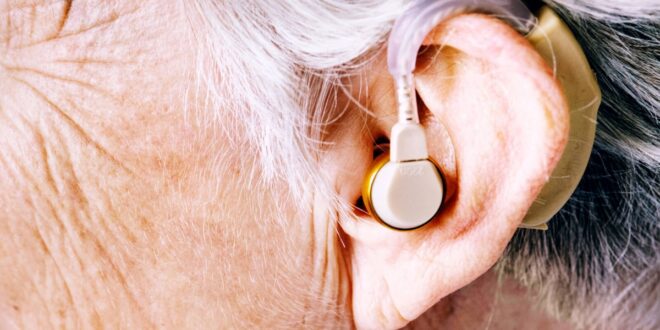Getting fitted with a hearing aid is a life-changing experience for many who suffer from hearing impairment. They bring countless medical and socio-emotional benefits to the wearer. These sophisticated, tiny devices comprise of durable materials that house sensitive electronics. They are incredibly powerful and provide consistent power daily. Modern hearing aids are strong and hardy but over time, with daily use, they are also susceptible to wear and tear. This begs the question: how long does a hearing aid last? How often do they need to be replaced? How long do hearing aid tubes last?
In case you are interested in finding out the answers to these questions, take a look at the following article.
How long does a hearing aid last?
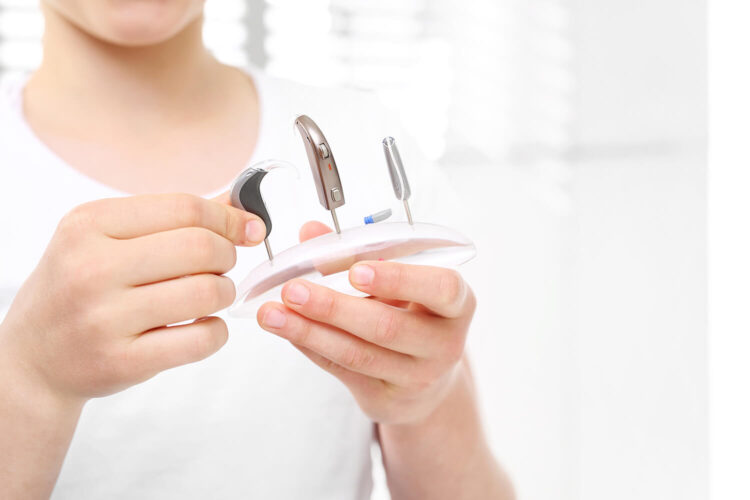
On average, hearing aids can last anywhere between three to seven years. The factors that influence the lifespan of a hearing aid include the construction of the hearing aid and how it is used. The most common types of hearing aids are the In-the-ear and behind-the-ear types. In-the-ear (ITE) hearing aids are estimated to last between four to five years whereas behind-the-ear (BTE) types should last for five to six years. ITE hearing aids are more discreet that BTE hearing aids but they are exposed to higher temperatures and more moisture due to how it is worn. They encounter more sweat and earwax than a BTE type hearing aid which is placed behind the ear. Audiologists recommend that hearing aids be replaced every three to five years but it depends on the patient’s individual needs.
Hearing aids don’t last forever but there’s no need to bust the bank as companies like Blue Angels Hearing offer high-quality rec
How to clean a hearing aid?
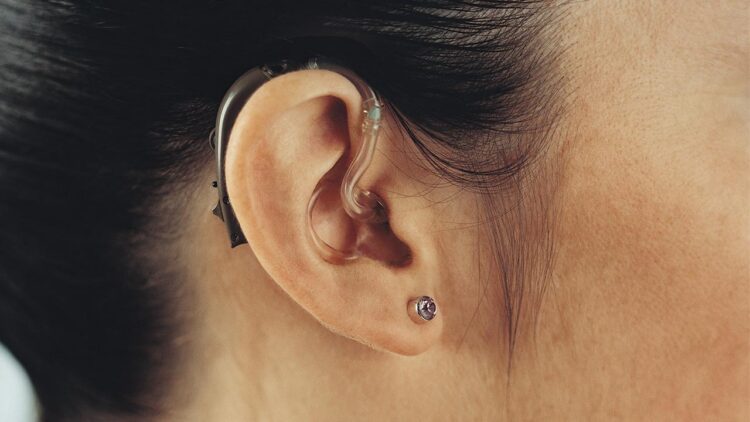
As they are regularly exposed to sweat, skin oil, moisture, dust, and various elements, hearing aids should ideally be cleaned daily for optimum use. When not in use, they should be kept in a secure and dry space. But even with daily maintenance cleaning, hearing aids should be brought in for professional cleaning, every three or four months, as there are many small and intricate parts that are difficult to clean on your own.
Moreover, a professional will be able to keep track of parts that need repair or replacement. Parts like hearing aid tubes, wax guards and silicon earpiece tips are readily-replaceable and upkeep of maintenance work like this will help make your hearing aids last as long as possible.
How often do they need to be replaced?
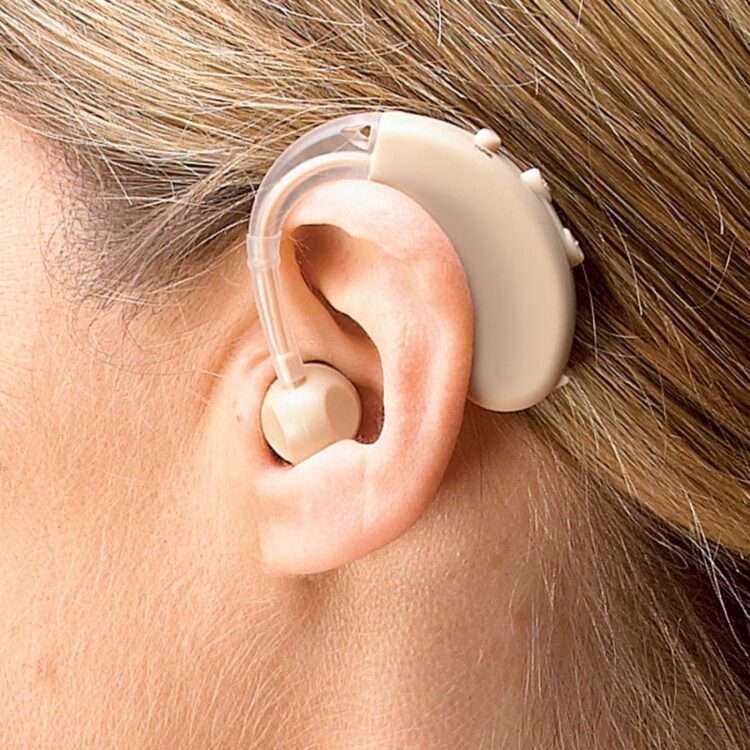
Maintenance and regular cleaning is an important factor in extending the lifespan of a hearing aid. But even then, other factors may influence the need to replace a hearing aid. Obsolescence can be a real issue when it comes to older hearing aids. While there are some who have used their hearing aids for close to ten years, they may already be outdated models that are due for an upgrade.
Manufacturers may stop making replacement parts for certain models which will make repair work impossible. Moreover, the software used to program hearing aids to change over time which means that it’s hard to reprogram older hearing aids. Hearing aid performance and features tend to advance very quickly and it is well worth the replacement to take advantage of them.
Also, it often happens that these devices need to go to service at least once a year, due to the fact that they are used every day, and are exposed to the external factors, i.e. humidity or moisture. The good news is that you probably won’t have to replace the whole device, but rather one part of it. This is the reason why hearing aids come with warranty and repair coverage. More importantly, this is the reason why it is essential to keep the warranty of your device so that you can use it when a situation like this occurs.
In addition to that, it often happens that a person’s needs change over time. The wearer’s hearing loss may deteriorate to a point where they would require a more powerful hearing aid. They might go through lifestyle changes and require a hearing aid that is more suitable. If you’ve reached the point when you need a new device, you should consider taking a look at a ReSound hearing aids here, which will allow you to hear better than you’ve heard in years. But, if you are wondering what to do with your old device once you have to get a new one, you can always help somebody. In cases where the hearing aids are still functional, people often decide to donate. So, if you have a functional device, but your needs have changed, and it is not suitable for you anymore, they can be donated to worthy causes!
How long do hearing aid tubes last?
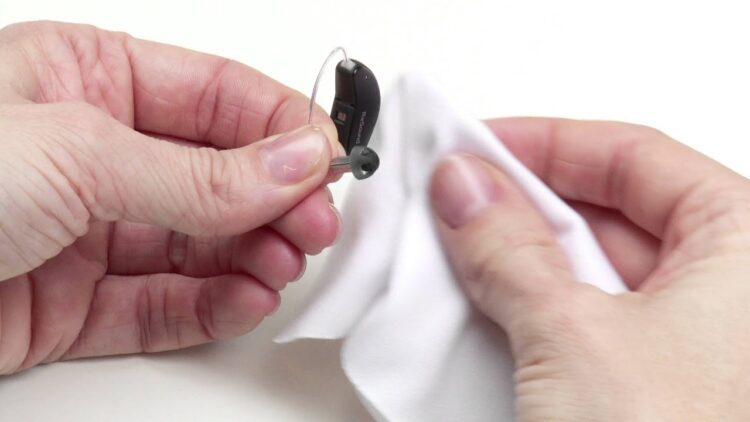
Lastly, many people wonder how much time needs to pass until they have to change the hearing aid tube. The answer to this question is dependent upon the individual. In other words, the period of lasting of the tube varies from person to person. Approximately, a tube lasts around 6 months. But it is always advisable to consult a professional, because he or she will tell you exactly whether it is time to change the tube, so you don’t have to wander in the dark and guess if the time has come to change your tube.
Conclusion
To sum up, today’s hearing aids are a lot different compared to the ones produced in the past. Not only are they more user-friendly and durable, but they also require less work when it comes to repairing. However, even though the hearing aids have significantly been advanced thanks to the scientific and technological breakthrough, their maintenance is crucially important. Therefore, with regular cleaning these devices can last up to seven years and be at their best performance!
Due to the fact that they are exposed to humidity, ear wax, and moisture, they can require repairmen and regular cleaning. The good news is that with proper maintenance, you can have one device for a long time. Nevertheless, it is important to consult experts, so having regular appointments with your audiologist will help in determining when and whether you should have your hearing aids changed. For hearing aids Perth, be sure to check out their website at www.artofhearing.com.au.
 Hi Boox Popular Magazine 2024
Hi Boox Popular Magazine 2024
